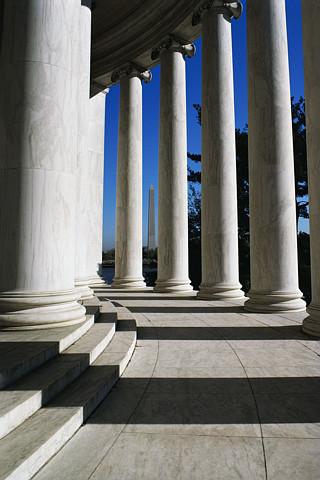NIW Requirements: Dhanasar Now, NYSDOT Then





The Dhanasar decision in December 2016 is the current standard for adjudicating National Interest Waiver (NIW) cases, overturning the previous NYSDOT precedent, which had been in place since 1998. Although the NYSDOT decision is no longer in force, it did serve as the basis for the Dhanasar decision, and so an understanding of NYSDOT may shed light on current NIW guidelines.
In short, the NYSDOT ruling established a three-prong test that applicants had to satisfy in order to be granted an NIW. Dhanasar keeps the three-prong format but modifies the prongs for the purposes of clarity.
Below is a rundown of the old NYSDOT requirements for granting an NIW, along with explanations.
NIW Minimum Requirements: “Advanced Degree” or “Exceptional Abilities”
At a minimum, an NIW applicant must hold an advanced degree, which may take the form of either an academic or professional U.S. degree above the baccalaureate level, or a foreign degree equivalent that is above the U.S. baccalaureate level. In the absence of an advanced degree, a U.S. bachelor’s degree (or foreign equivalent) in addition to at least five years of progressive experience in the alien’s profession is considered to be the equivalent of a U.S. master's degree.
Alternatively, the applicant may also claim exceptional ability, or a degree of expertise significantly above that ordinarily encountered in the alien’s profession.
However, as the Administrative Appeals Office (AAO), the appellate body that reviews U.S. Citizenship and Immigration Services (USCIS) decisions, has stated, whether an alien seeks classification as an alien of exceptional ability or as an advanced degree candidate, the alien cannot qualify for an NIW by merely or generally demonstrating a degree of expertise significantly above that ordinarily encountered in his or her field of expertise. Instead, specific criteria, enumerated in NYSDOT and then in Dhanasar, must also be met for an NIW petition.
The Dhanasar decision retains these minimum requirements.
Old NIW Standard: NYSDOT
Keep in mind that the information below no longer applies to NIW procedures. We’ve preserved this information here because it comprised the basis for the recently decided adjudication standards, and is thus historically important. For an in-depth look at these new standards, click here.
In order to qualify for an NIW, applicants previously had to satisfy the requirements of the three-prong test laid out in New York State Dept. of Transportation, 22 I&N Dec. 215 (Comm. 1998) (“NYSDOT”):
- They must have sought to work in an area of substantial intrinsic merit;
- Their work must have demonstrated a benefit national in scope;
- They must have served U.S. national interests to a substantially greater degree than would any other available U.S. workers having the same minimum qualifications. The national interest would be adversely affected if a labor certification were required.
In one case, the beneficiary was a civil engineer from India who specialized in bridge engineering projects for NYSDOT. NYSDOT filed an immigrant petition for the engineer requesting an NIW. The case appeared to be persuasive: the petition included several testimonials about the beneficiary’s superior engineering skills and how his expertise was in short supply and important to U.S. national interests in terms of infrastructure and infrastructure safety. However, USCIS denied the petition, and the AAO denied a subsequent appeal, too.
USCIS provided several reasons as to why the petition was denied. First, according to AAO, petitioners cannot establish their qualifying for an NIW based solely on the importance of their occupation. While the Associate Commissioner acknowledged that engineering is a field of substantial intrinsic merit, this fact alone did not suffice to grant the waiver. Neither did the Associate Commissioner’s concession that, while the beneficiary's employment seemed to be limited to a particular geographic area, New York's bridges and roads connect the state to the national transportation system and hence the prospective benefit was national in scope. The Associate Commissioner summarized the determinative issue in the case as follows:
“The issue in this case is not whether proper bridge maintenance is in the national interest, but rather whether this particular beneficiary, to a greater extent than U.S. workers having the same minimum qualifications, plays a significant role in the preservation and construction of bridges.”
Finding that the beneficiary did not meet this component of the test, the Associate Commissioner explained:
Qualifying for an NIW: Three-Prong Test In-Depth“It cannot suffice to state that the alien possesses useful skills, or a unique background... regardless of the alien's particular experience or skills, even assuming they are unique, the benefit the alien's skills or background will provide to the United States must also considerably outweigh the inherent national interest in protecting U.S. workers through the labor certification process.”
The occupations that qualify for an NIW are not defined by statute. Instead, the explicit qualifications take the form of a three-prong test. The following are more detailed explanations of the three-prong requirements:
-
Work in an area of “substantial intrinsic merit” referred to work in a field that is valuable to the national interests of the U.S. Research in any scientific field, for example, can be said to have substantial intrinsic merit to the nation at large. Likewise, a sociologist studying demographic trends relating to the U.S. Census can argue that she seeks work in an area of substantial intrinsic merit. Similarly, an educational policy expert can show that his field has substantial intrinsic merit due to its capacity to improve society through education. Provided the underlying argument is cogent and persuasive, this criterion is not difficult to meet.
-
Proving that the applicant’s work, if successful, benefits the U.S. nationally in effect meant that said applicant’s work cannot have a geographically constrained impact. An applicant who has published research can generally show that his or her work has national scope since academic publications are disseminated nationally and internationally. In the absence of publications, an applicant can still make the argument that his or her line of work has national implications. For example, a petroleum engineer can argue that her work impacts the entire U.S. in terms of energy supply and refinery safety.
-
USCIS interpreted the last prong, that national Interest would be adversely affected by requiring labor certification, to mean that the benefit of an applicant’s work to the U.S. is so great as to outweigh the nation's inherent interest in protecting U.S. workers by requiring aliens to undergo this process. Of the three, this prong was arguably the most difficult requirement to satisfy.
First, the alien had to submit evidence to establish that he or she had a past (as opposed to a projected) record of specific achievement in the field. USCIS believed that this sort of record was what justified projections of future benefit to national interests. Satisfying this criterion was possible by citing tangible achievements such as publications and research accomplishments, the significance of which was brought out through objective criteria such as the quantity of first-authored publications and independent citations, as well as subjective criteria like testimony by independent recommenders.
Second, the alien had to establish that he or she was able to serve the national interest to a substantially greater degree than would the majority of the alien’s professional peers. This criterion was effectively demonstrated through testimony by recommenders.
Third, the alien had to demonstrate, to some degree, his or her influence on the relevant field of employment as a whole. This was shown through objective criteria like citations, downloads, and commercialization of patents, as well as by way of testimony by recommenders.
Lessons from USCIS/AAO Decisions
The overarching conclusion to this previous precedent was that specific details matter, and each aspect of a case should be carefully managed to best fit the enumerated criteria. A strong case can be denied because of careless presentation of evidence by an attorney or self-petitioner. Take the example below of how an otherwise possibly winnable case was ultimately denied by both USCIS and, after appeal, by AAO.
The petitioner-beneficiary was a postdoctoral research scholar at the University of Iowa. He subsequently began working at the National Institute of Mental Health (NIMH). Both of these positions, even to a layperson, indicate the beneficiary’s abilities and national scope of his work. However, the case presented to USCIS had several fatal flaws. For one, the lawyer handling the case misrepresented to USCIS the alien’s salary; while the attorney asserted that his client “has commanded a salary equal to his level of knowledge,” in reality, the petitioner was making a relatively modest salary. Additionally, out of seven items listed as publications on the alien’s CV, only two were actually published. On top of these flaws, of the numerous recommendation letters included in the petition package, some clearly lacked credibility; one authored by a senior scientific officer at a pharmaceutical company in India wrote that the petitioner was one of the top teaching assistants in the Department of Chemistry at the University of Akron, with absolutely no basis to make such a specific assessment. Further, as AAO noted, while the recommendation letters contained highly technical descriptions of the petitioner's work, none succeeding in answering the question of how, exactly, the petitioner's work had advanced knowledge or produced new practical applications.
As the above example clearly illustrates, satisfying NIW criteria, whether in the past with NYSDOT or currently with Dhanasar’s guidelines, requires careful preparation and planning. Our experienced attorneys, with decades of experience, provide such services.
The NIW process is complex and, at times, a bit convoluted. We recommend that you seek the assistance of experienced immigration attorneys. Over the past two decades, we have successfully represented thousands of clients in their NIW cases. If you would like to contact us, please call us at (713) 771-8433 or visit us at one of our seven locations. You can also send us an e-mail at info@hooyou.com. Our superior attorneys will ensure that you receive only the highest quality of service.
Read the USCIS ruling (Matter of DHANASAR) governing NIW here. And for more detailed information about the National Interest Waiver, including minimum requirements and USCIS policies, please click on the relevant links on this page:
- National Interest Waiver (NIW)
- Quick Start Guide to the National Interest Waiver
- New NIW Standards: Dhanasar
- Dhanasar vs. NYSDOT
- NIW Requirements: Dhanasar Now, NYSDOT Then
- Advanced Degree Professional vs. Exceptional Ability
- NIW Application Process
- NIW Supporting Evidence
- Letters of Recommendation
- Documents required for filing NIW
- Meeting the “National Interest” Standard
- NIW Services We Provide
- Frequently Asked Questions about NIWs
- Recent USCIS Developments on NIW Adjudication
- In-depth AAO Cases Analysis
- NIW Appeals and Motions
- Physician National Interest Waiver
- NIW Client Testimonials
- Attorney's Fees
- Articles & News on NIW
Updated 03/23/17




